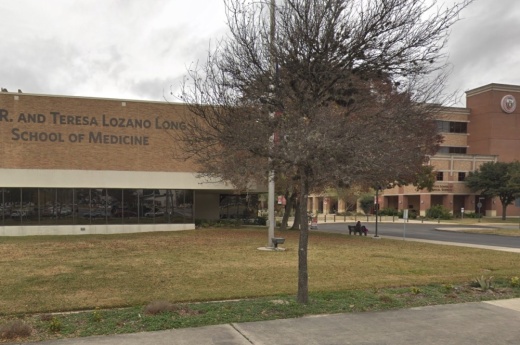The University of Texas Health Science Center at San Antonio will leverage a federal three-year, $3 million grant to train community health workers with the goal of increasing access to health services and addressing the public health needs of underserved communities in South Texas.
According to a news release, the grant from the U.S. Department of Health and Human Services/Health Resources and Services Administration is part of the federal government’s investment of $226.5 million to build the nation’s community and public health workforce.
The release said this initiative will increase the number of community health workers trained to connect people to preventive, curative and recovery services, including care related to COVID-19, mental health, chronic diseases—such as diabetes—and other essential health services.
UT Health San Antonio is one of three local entities receiving a HRSA grant for workforce development programs. The others are YWCA San Antonio and the San Antonio Clubhouse, the release said.
Dr. Jason Rosenfeld, global health education director with the Center for Medical Humanities and Ethics at UT Health San Antonio, said the grant recognizes the vital role community health workers play within public health and health care systems.
Rosenfeld said, in an overburdened health system, community health workers have proven vital during the COVID-19 pandemic, contributing to contact tracing, education and vaccination efforts.
“They are simultaneously helping to address the social determinants of health, including economic stability, access to health care and education, for better health and well-being. Their frontline work is focused on reducing health inequities and preventable illnesses,” Rosenfeld said.
The release said the program will train 275 new community health workers across 38 South Texas counties from Brownsville to Laredo, including the area’s rural communities. The collaborative also plans to support an additional 75 community health workers maintaining state certification.
To scale up the program, UT Health San Antonio will collaborate with partners across South Texas to deliver community health worker certification and continuing education training. The program plans to provide these organizations with curriculum on timely topics, such as mental health, and expertise in public health best practices, the release said.
Additionally, these community partners will help trainees with financial and social support, while facilitating employment through registered apprenticeship programs, internships and other professional support services, the release said.
Rosenfeld said a key to the community health worker model is that community health workers focus on building trusting and respectful relationships with their clients, especially underserved, marginalized populations that tend to be communities of color.
“Often, they have lived experience that complements the technical training and skills they receive through their certification,” Rosenfeld said.
Although community health work has existed for decades, there is now a wider acknowledgement of the positive impact of community health workers on improving community health and restoring trust in the health care system, the release said.
For example, a UT Health San Antonio study found that one-third of patients achieved long-term self-care of their Type 2 diabetes after building trusting relationships with community health workers, according to the release.
The program will cast a large net for prospective community health workers, including people interested in joining the health field, individuals within the health field looking for new career pipelines and those interested in gaining certification for work they may already be doing as “promotores”—Spanish for community health workers. The program is open to U.S. residents age 18 and older who have a high school diploma or GED, the release said.
“We want to create pipelines for individuals who may not be aware that community health worker is a profession. We want South Texans to know that they can become a certified [community health worker] and serve their communities in a meaningful way,” Rosenfeld said.





